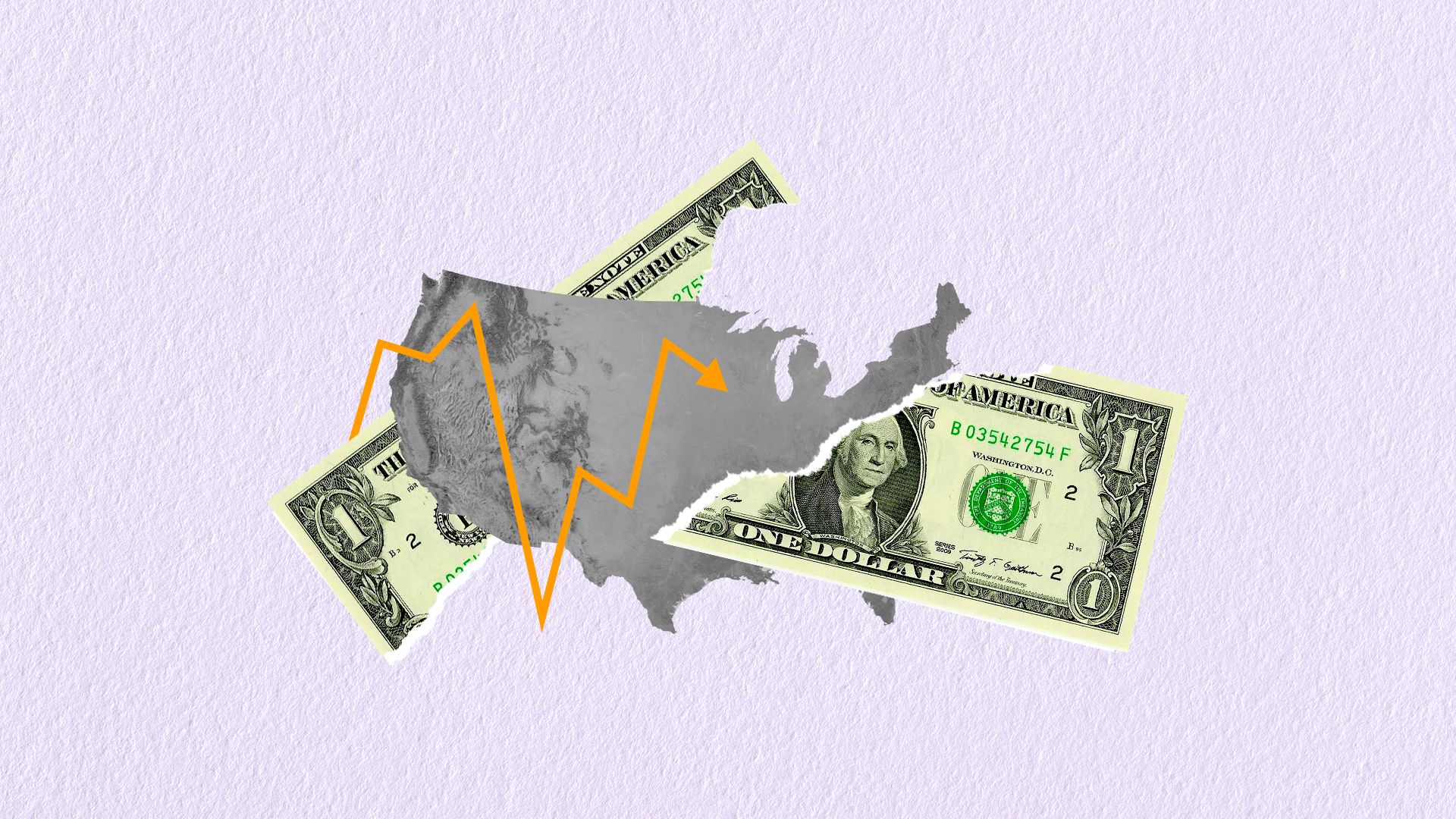Deep Dive: We're safer 10 years after financial crisis

- Felix Salmon, author ofAxios Markets

Illustration: Rebecca Zisser/Axios
For millions of Americans, the 2008 financial crisis came out of the blue. On the theory that it's always calmest before the storm, could another financial crisis of that magnitude come at any moment? The answer, reassuringly, is no.
The bottom line: The stock market is frothy, and it's possible that entire industries like fracking could suffer widespread defaults. But when stocks and bonds go down rather than up, that's a market cycle, not a financial crisis.
Remember the stock-market crash of 2000? People lost money, but the broad economy only experienced a mild recession. And post-crisis safeguards have made a crisis much less likely than it was in 2008.
- The financial crisis was a wake-up call to central banks in every country, which realized that their main job is bank supervision and crisis prevention, not setting interest rates.
- Basel III, a global financial reform package in which the U.S. participated, forced all of the world's biggest banks to become much safer than they were before.
- Dodd-Frank included beefed-up capital requirements that make it much harder for U.S. banks to take outsized risks. It also created the Financial Stability Oversight Council, which is charged with identifying and mitigating systemic risks.
- We no longer have systemically-important investment banks, whereas there were five pre-crisis: Lehman Brothers (RIP); Bear Stearns, bought by JP Morgan; Merrill Lynch, bought by Bank of America; and Goldman Sachs and Morgan Stanley, which became bank holding companies.
No regulatory regime is perfect, and crises still happen, as a glance at Turkey or Venezuela will attest. But very real progress has been made in terms of U.S. crisis prevention. Plus, American households are much less leveraged than they were pre-crisis, and the global liquidity glut is flowing into equity rather than into dubiously-rated synthetic debt obligations.
WeWork and Netflix might well go belly up. But if they do, they shouldn't take the rest of us down with them.
Sign up here for Felix Salmon's Sunday night Edge newsletter on the week ahead in markets and business.
Go deeper:
2. The most urgent financial threats
3. When crisis hit, we fell far and fast
4. The financial crisis executives who got away
5. How the Great Recession fueled for-profit colleges
6. How the Great Recession teed off tech's long boom
7. The Great Recession Generation
8. The financial meltdown's green aftermath
9. The Great Recession's uneven recovery
10. What they're saying: Consequences of the financial crisis